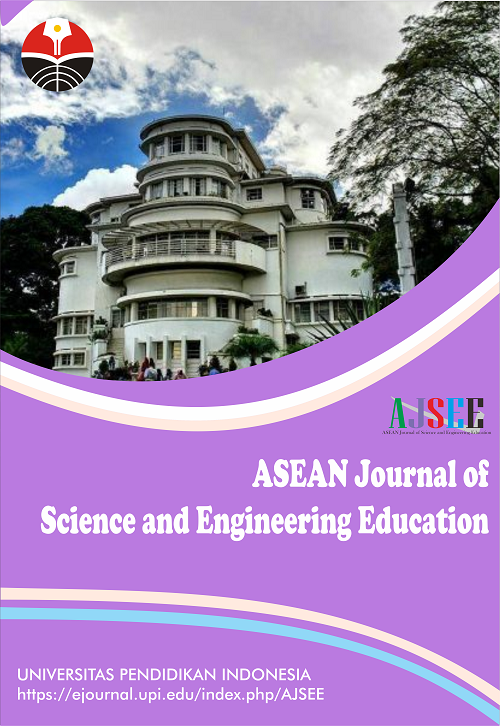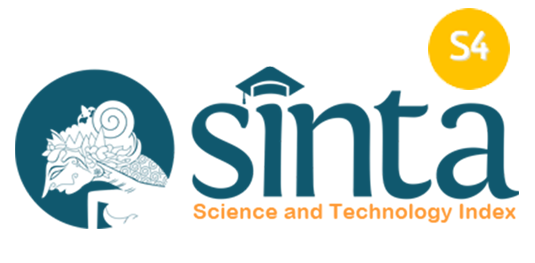Self-Efficacy as a Mediator between Motivation and Confidence in Mathematics
Abstract
Keywords
Full Text:
PDFReferences
Bandura, A. (1999). Social cognitive theory of personality. Handbook of Personality, 2(1), 154-196.
Bautista, N. U. (2011). Investigating the use of vicarious and mastery experiences in influencing early childhood education majors’ self-efficacy beliefs. Journal of Science Teacher Education, 22, 333-349.
Benight, C. C., and Bandura, A. (2004). Social cognitive theory of posttraumatic recovery: The role of perceived self-efficacy. Behaviour Research and Therapy, 42(10), 1129-1148.
Brandenberger, C. C., Hagenauer, G., and Hascher, T. (2018). Promoting students’ self-determined motivation in maths: results of a 1-year classroom intervention. European Journal of Psychology of Education, 33, 295-317.
Chatzea, V. E., Logothetis, I., Kalogiannakis, M., Rovithis, M., and Vidakis, N. (2024). Digital educational tools for undergraduate nursing education: a review of serious games, gamified applications and non-gamified virtual reality simulations/tools for nursing students. Information, 15(7), 410.
Cheung, D. (2015). The combined effects of classroom teaching and learning strategy use on students’ chemistry self-efficacy. Research in Science Education, 45, 101-116.
Clark, L. A., and Watson, D. (2019). Constructing validity: New developments in creating objective measuring instruments. Psychological Assessment, 31(12), 1412.
Deci, E. L., and Ryan, R. M. (2008). Self-determination theory: A macrotheory of human motivation, development, and health. Canadian Psychology/Psychologie Canadienne, 49(3), 182.
DiBenedetto, M. K., and Schunk, D. H. (2018). Self-efficacy in education revisited through a sociocultural lens. Big Theories Revisited, 2(5), 117-131.
Domingo, J. L., Marquès, M., and Rovira, J. (2020). Influence of airborne transmission of SARS-CoV-2 on COVID-19 pandemic. A review. Environmental Research, 188, 109861.
Dweck, C. S., and Yeager, D. S. (2019). Mindsets: A view from two eras. Perspectives on Psychological Science, 14(3), 481–496.
Fong, C. J., and Krause, J. M. (2014). Lost confidence and potential: A mixed methods study of underachieving college students’ sources of self-efficacy. Social Psychology of Education, 17(2), 249-268.
Goldberg, M. D., and Cornell, D. G. (1998). The influence of intrinsic motivation and self-concept on academic achievement in second-and third-grade students. Journal for the Education of the Gifted, 21(2), 179-205.
Hammad, S., Graham, T., Dimitriadis, C., and Taylor, A. (2022). Effects of a successful mathematics classroom framework on students’ mathematics self-efficacy, motivation, and achievement: a case study with freshmen students at a university foundation programme in Kuwait. International Journal of Mathematical Education in Science and Technology, 53(6), 1502-1527.
Hartas, D. (2011). Families’ social backgrounds matter: Socio‐economic factors, home learning and young children's language, literacy and social outcomes. British Educational Research Journal, 37(6), 893-914.
Kang, Y., McNeish, D. M., and Hancock, G. R. (2016). The role of measurement quality on practical guidelines for assessing measurement and structural invariance. Educational and Psychological Measurement, 76(4), 533-561.
Lau, S., and Roeser, R. W. (2002). Cognitive abilities and motivational processes in high school students' situational engagement and achievement in science. Educational Assessment, 8(2), 139-162.
Midgley, C., Feldlaufer, H., and Eccles, J. S. (1989). Change in teacher efficacy and student self-and task-related beliefs in mathematics during the transition to junior high school. Journal of Educational Psychology, 81(2), 247.
Nevitt, J., and Hancock, G. R. (2001). Performance of bootstrapping approaches to model test statistics and parameter standard error estimation in structural equation modeling. Structural Equation Modeling, 8(3), 353-377.
Pajares, F., and Schunk, D. (2001). The development of academic self-efficacy. Development of Achievement Motivation, 7, 1-27.
Schunk, D. H., and DiBenedetto, M. K. (2020). Motivation and social-emotional learning: Theory, research, and practice. Contemporary Educational Psychology, 60, 101830.
Senler, B., and Sungur, S. (2009). Parental influences on students' self-concept, task value beliefs, and achievement in science. The Spanish Journal of Psychology, 12(1), 106-117.
Sheu, H. B., Lent, R. W., Miller, M. J., Penn, L. T., Cusick, M. E., and Truong, N. N. (2018). Sources of self-efficacy and outcome expectations in science, technology, engineering, and mathematics domains: A meta-analysis. Journal of Vocational Behavior, 109, 118-136.
Skaalvik, E. M., and Skaalvik, S. (2014). Teacher self-efficacy and perceived autonomy: Relations with teacher engagement, job satisfaction, and emotional exhaustion. Psychological Reports, 114(1), 68-77.
Stankov, L., Lee, J., Luo, W., and Hogan, D. J. (2012). Confidence: A better predictor of academic achievement than self-efficacy, self-concept and anxiety?. Learning and Individual Differences, 22(6), 747-758.
Suárez-Álvarez, J., Fernández-Alonso, R., and Muñiz, J. (2014). Self-concept, motivation, expectations, and socioeconomic level as predictors of academic performance in mathematics. Learning and Individual Differences, 30, 118-123.
Usher, E. L. (2009). Sources of middle school students’ self-efficacy in mathematics: A qualitative investigation. American Educational Research Journal, 46(1), 275-314.
Usher, E. L., and Pajares, F. (2008). Sources of self-efficacy in school: Critical review of the literature and future directions. Review of Educational Research, 78(4), 751-796.
Usher, E. L., Li, C. R., Butz, A. R., and Rojas, J. P. (2019). Perseverant grit and self-efficacy: Are both essential for children’s academic success?. Journal of Educational Psychology, 111(5), 877.
Valentine, J. C., DuBois, D. L., and Cooper, H. (2004). The relation between self-beliefs and academic achievement: A meta-analytic review. Educational Psychologist, 39(2), 111-133.
Wong, T. T. Y. (2017). The unique and shared contributions of arithmetic operation understanding and numerical magnitude representation to children’s mathematics achievement. Journal of Experimental Child Psychology, 164, 68-86.
Zimmerman, B. J., and Schunk, D. H. (2021). Self-regulated learning and academic achievement: Theoretical perspectives. Contemporary Educational Psychology, 67, 102025.
DOI: https://doi.org/10.17509/ajsee.v5i1.82230
Refbacks
- There are currently no refbacks.
Copyright (c) 2025 Universitas Pendidikan Indonesia

This work is licensed under a Creative Commons Attribution-ShareAlike 4.0 International License.














